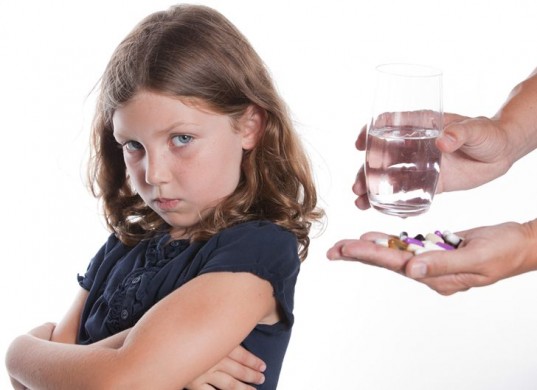
For the first time, the American Academy of Pediatrics (AAP) has weighed in on organic foods for children. Its news release was widely covered in the national media.
While the AAP should be commended for acknowledging the potentially harmful effects of pesticide residues on conventional foods, their report—and associated press coverage—is seriously flawed in its basic approach to agrochemical contamination in our food supply and the associated threat to public health.
Even though the AAP acknowledges that many pesticides are neurotoxins, that studies have linked exposure to pesticides to neurological harm in children, and that a recent peer-reviewed study correlated higher pesticide residue levels in children with higher rates of attention-deficit hyperactivity disorder (ADHD), the AAP is cautious about reaching a conclusion regarding the harmful effects of pesticides.
Millions of children are taking powerful mind-altering drugs, often before they're even old enough to attend school. The long-term effects of psychotropic drugs on children are largely unknown, while serious short-term side effects are unfortunately common, including seizures, suicidal ideation, violent behavior and more.
According to WebMD, nearly five million American children have been labeled with some type of serious mental disorder. In any given year, 20 percent of children will be diagnosed with a mental illness.
The most common diagnosis for kids age 3 to 17 is ADHD, followed by behavioral problems, anxiety and depression, and many of these children are being prescribed powerful and potentially dangerous psychiatric drugs.
Bad Behavior or Pathology?
Theroux identifies a fine line between ordinary bad behavior and pathology and poses the question of whether the latest drugs are taking the place of “good old-fashioned parenting.”
What happens to children when they are medicated at a very young age, …
![]()
The burden of proof should lie with the pesticide manufacturers, who must conclusively demonstrate that their toxins are safe. It should not be the responsibility of our children to prove, decades later, that the pesticides they consumed as kids contributed to their generation’s health problems.
By failing to come out strongly in favor of organic foods, the AAP does a serious disservice to the health of our children and the well-being of future generations.
Please Read this Article at Articles.Mercola.com





Leave a Reply